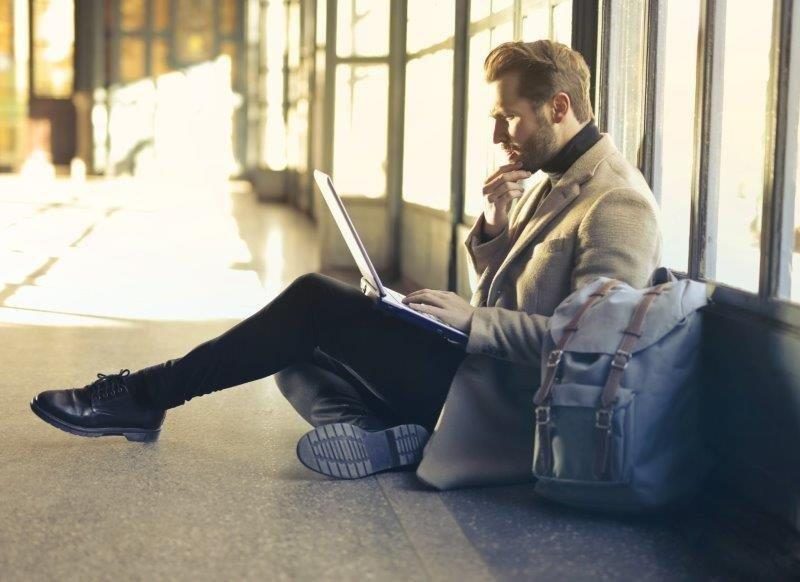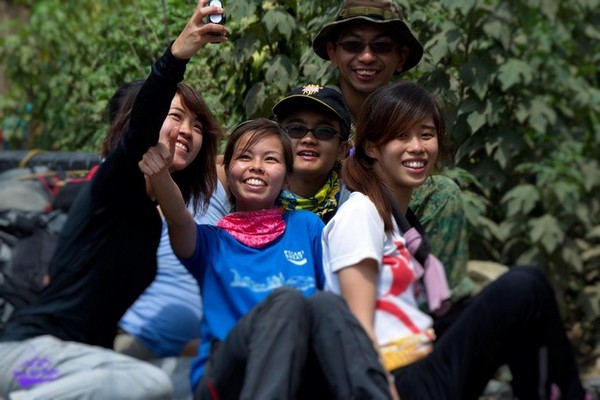In view of the recent pandemic, where travel restrictions and safety requirements are heightened, travelers are getting more accustomed to having to take more stringent measures before embarking on a trip. Apart from health safety, expedition safety and immigration matters, there is also one other type of safety that should be considered alongside your travel insurance, visas and well-packed luggage. That will be digital safety.

For many who travel and are highly reliant on their phones for directions, payments and communication, enabling location tracking on your mobile phone is also rather common.
If it gets stolen by pickpocketers on the streets or unsupervised when embarking high wall climbing, having the location tracking on allows you can see where it is and find it. Some users have even installed a wiping app to delete sensitive information remotely. To minimize getting deductions on your credit card without you knowing, another best practice travelers have done is to only bring a single credit/ debit card or in a more recent popular trend, a digital credit card with a quick expiry date.
Revealing of Travel Plans
It feels great to get that break finally, and you log in to your Instagram account to post an instastory you’re about to take off. However, the public Wi-Fi you utilized made your IP address visible, and a hacker gained access to your information.

Not suspecting anything, you get on the flight, land safely, and exit. When you gain access to the internet again, you see that your credit card has been maxed out, and your friends texted you that your home got broken into.
Two things happened here. First of all, you posted upcoming travel plans, which means that your home was empty. Secondly, you connected to a public Wi-Fi without a VPN. These situations are more than enough reasons to pay attention to digital safety.
Can you get hacked that easily?
Yes. Even though public networks seem like a blessing when you’re abroad or in a place without data, they’re a curse in disguise. Cyber-attacks increase every year, and airports and popular tourist destinations are the hotspots. Public networks are often insecure, and hackers see them as places where they can access your information. It’s vital to avoid your banking apps while traveling.

What can you do to protect yourself from being compromised
Firstly, it’s crucial never to post where you’re going on social media. This protects you from real criminals that can enter your home and steal physical items.
Secondly, there’s cybercrime. The way to keep your information anonymous and secure is by using a VPN. These applications mask your IP address when you’re browsing the web. That’s important for two reasons. You can connect to public Wi-Fi networks without the fear of someone hacking you. In the case of visiting a fake site, your IP will be masked and encrypted.

Does a VPN protect you from other threats?
Virtual private networks are getting better by the day. They have advanced protection features to help you avoid cyber threats before interacting with them. The program will notify you whenever you visit a suspicious site, remove ads while browsing, and tell you which files contain malware.
Nowadays, most of our information is inside our phones or laptops. Opening one attachment from your email will infect your device and compromise your data. Cybercriminals can empty your bank account in settings without leaving a single trace. Using the fastest VPN will feel like regular browsing, but your device will be protected.

Are there some things a VPN can’t protect you from?
Even if you use a VPN correctly, there are still dangers lurking. If someone planted malware in your device before using the service, they could still exploit your device. That’s because they already know your actual IP address. No matter how many times you mask it, they’ll still have it. The only solution if that happens is to contact your internet service provider.
Additionally, there are other security measures to take. If you use a weak email password, modern hackers can crack it in a few seconds. That’s why you should use combinations of letters, numbers, and special characters.
One of the best pieces of advice is to create a passphrase instead of a password. The longer it is, the harder it is to crack. Also, remember to enable two-factor authentication. That makes the hacking process even harder. If your phone allows it, enable fingerprint or face unlocks.
What are some other digital safety tips?
It’s wise to consider using burner phones while you’re abroad. If you plan on climbing, then there’s a chance someone will steal your backpack with your phone in it. However, if it’s just a burner phone, it doesn’t matter since your main one will be home.
This is especially true if you have the newest version of the iPhone. In some third-world countries, Apple products are seen as luxurious items, and local thieves could target you. If you carry an old phone, you won’t stand out too much as a tourist and blend in with the crowd.
Make sure to have your wallet with you at all times, and never lose sight of your bank cards. Criminals are becoming more innovative, and they can use fake registers to get a hold of your credit card info and PIN. Keep a careful watch on any suspicious transactions. If you notice something irregular, notify your bank immediately.
A few final words
Even though traveling is supposed to be fun and thrilling, you should never forget the dangers. Pay attention to safety tips, and Google the most common scams or threats before visiting a foreign country. Finally, remember to use a VPN to protect yourself from hackers, cybercriminals, and internet service providers.

No Comments